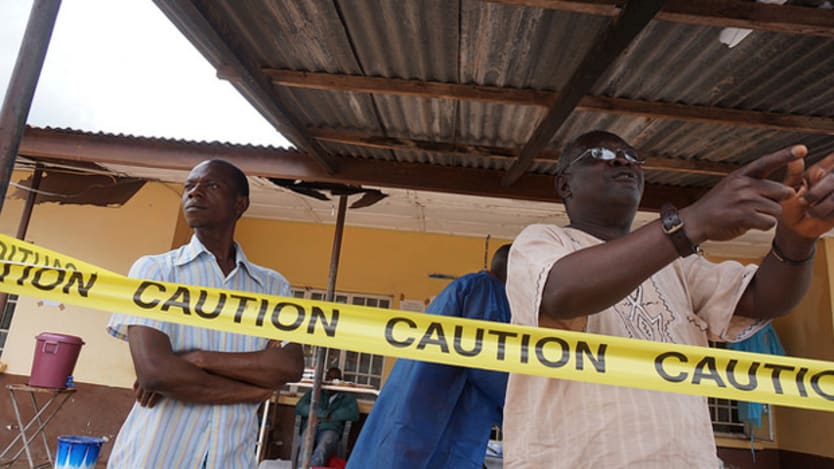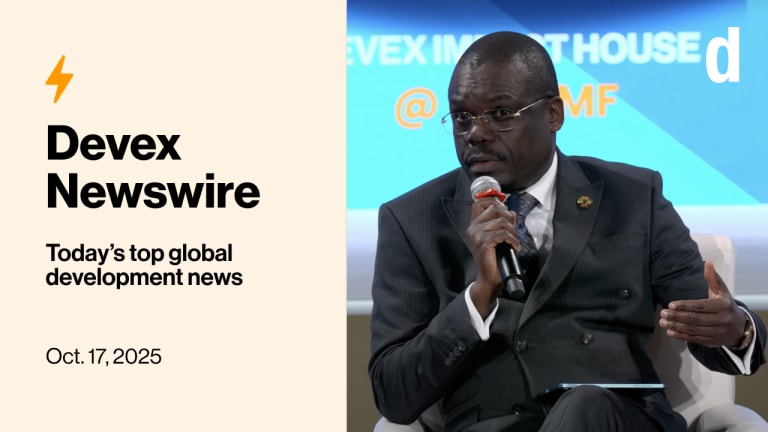
In West Africa, deaths from the Ebola virus continue to mount by the day — more than 2,800 as of late September. If donors didn’t step up their response and there were no changes in community behavior, the U.S. Centers for Disease Control and Prevention estimated there would be as many as 21,000 cases by the end of this month and up to 1.4 million infected people by January 2015.
And so, major international donors stepped up their response. In September, the Obama administration outlined a strategy that included deploying 3,000 U.S. forces to train local health workers on top of an additional $75 million to fund the establishment of more treatment units. The World Bank likewise announced $105 million in grants, with more to come, to combat the disease in Guinea, Liberia and Sierra Leone.
“We have a choice right now; we have a choice today,” World Bank President Jim Yong Kim said during a conference call to present the findings of a bank analysis on Ebola’s economic impact, as reported by Devex staff writer Jenny Lei Ravelo. “And that choice is if we invest everything that is needed right now, the costs going forward will be much, much less, not only in human lives — which is of course the most important to us — but in overall economic impact.”
The analysis cites some priority sectors for international aid, including boosting the surveillance, detection and treatment capacity of African health systems. But some experts are reminding donors not to neglect another important sector: water, sanitation and hygiene.
“In a lot of [developing countries], the health departments are very inflated in terms of dollars and funding, but the sanitation and sewage departments are very underfunded, and that’s very important to preventing the spread of these diseases,” Shawn Seipler, executive director and co-founder of Clean the World, told Devex reporter Jeff Tyson.
Many Devex readers seem to agree with Seipler.
Water and sanitation should be prioritized in spending, even over health, because it is essential to preventing people from contracting viruses that cause illnesses, argued a reader named Carla Y.
Sanitary waste disposal should also be included in any health system strengthening initiative, according to George Siaway, who noted that open defecation remains a public health challenge in the Ebola-affected countries.
In Guinea, for instance, it was difficult to get garbage collection efforts going under a World Bank-funded project, John Schwartz recalled. Although that was more than two decades ago, Schwartz “often wondered why it is so hard to change culture and mindset in African [least developed countries] even if the immediate benefits are so clear.”
Improving hygiene is also cheaper than providing health care, noted reader Florian. But “[d]isplaying the sick and suffering who need treatment sells better than showing the dirty and the careless who need [counseling] and soap” and there are fewer business opportunities for multinational corporations and their charitable arms.
If soap is not available, why not try ash, which Torsten Mandal explained is used in funerals and an effective alternative disinfecting agent.
How can the international community help to improve sanitation to prevent the spread of viruses like Ebola? Share your thoughts by leaving a comment below.
Join the Devex community and access more in-depth analysis, breaking news and business advice — and a host of other services — on international development, humanitarian aid and global health.








